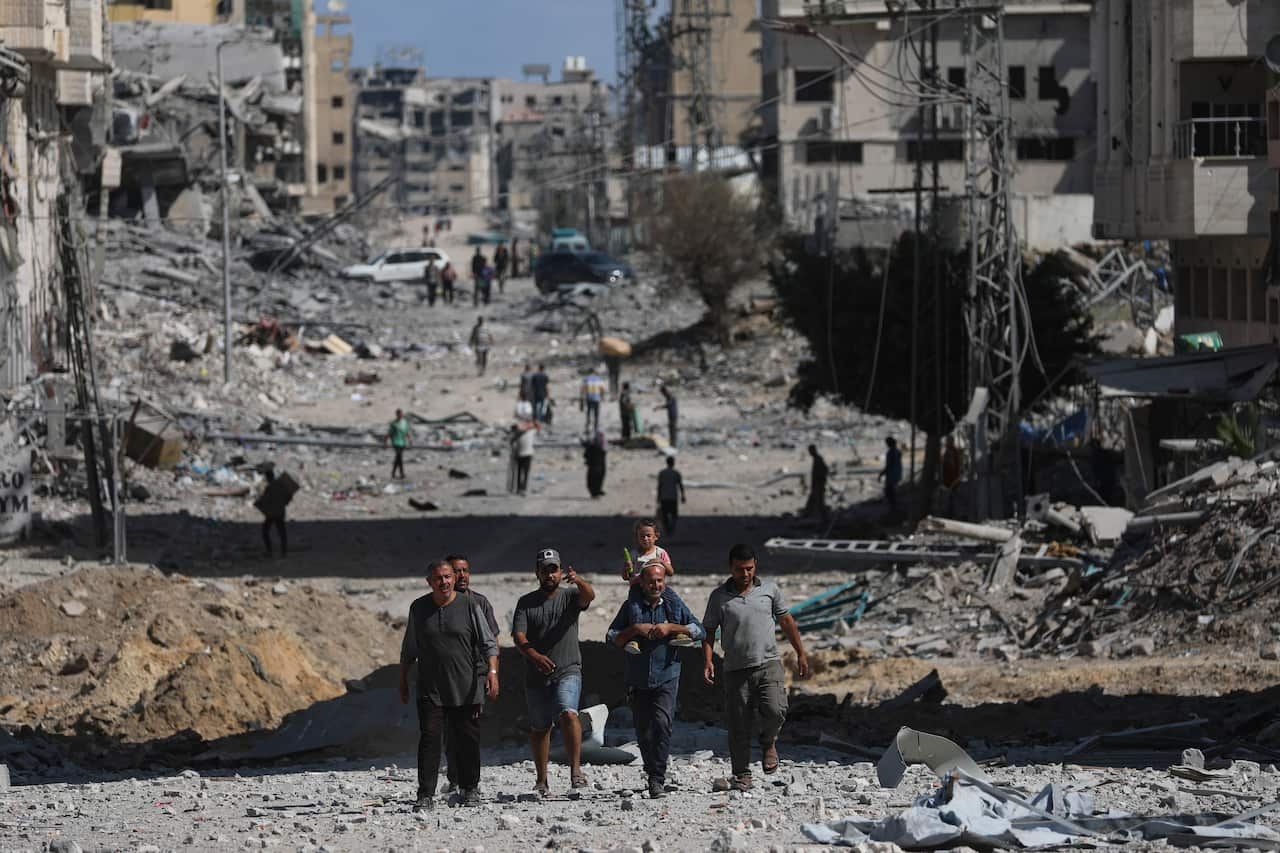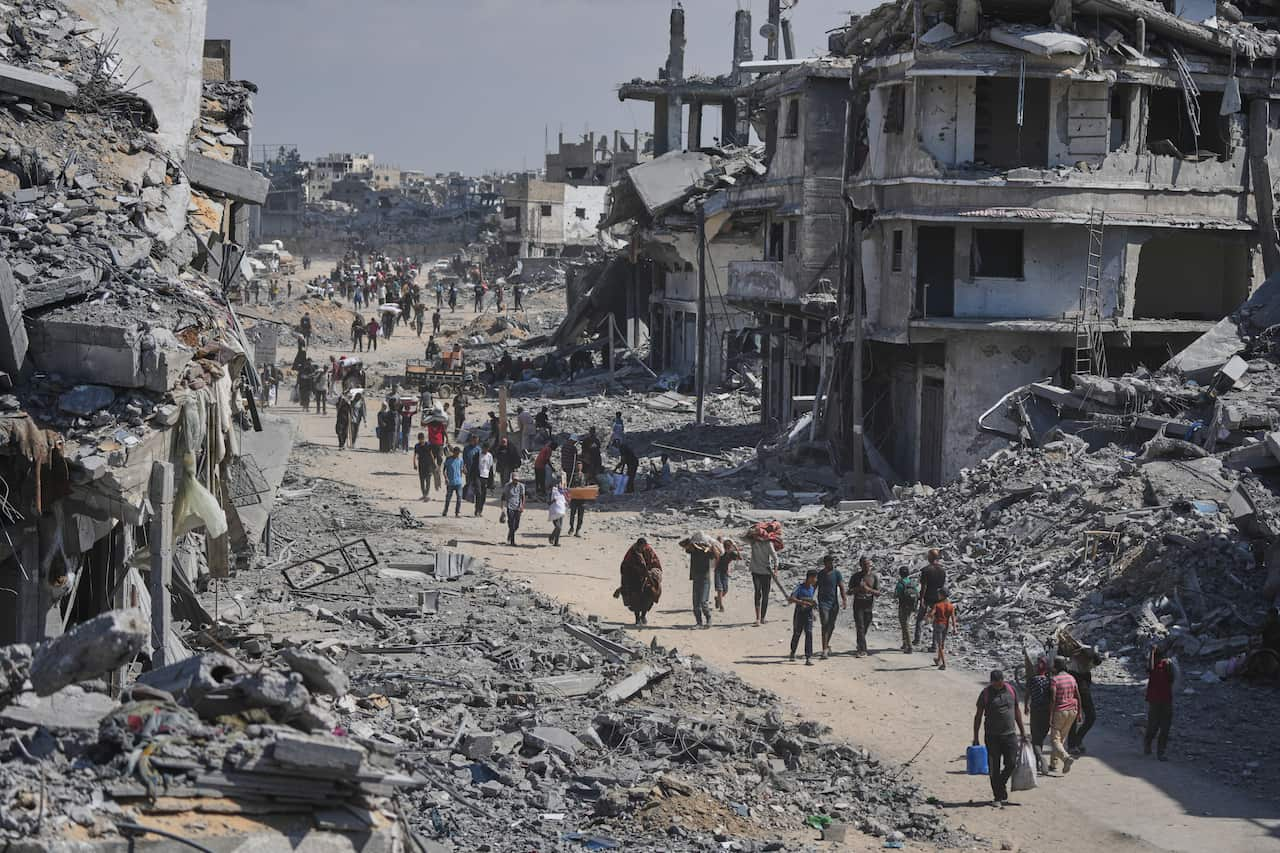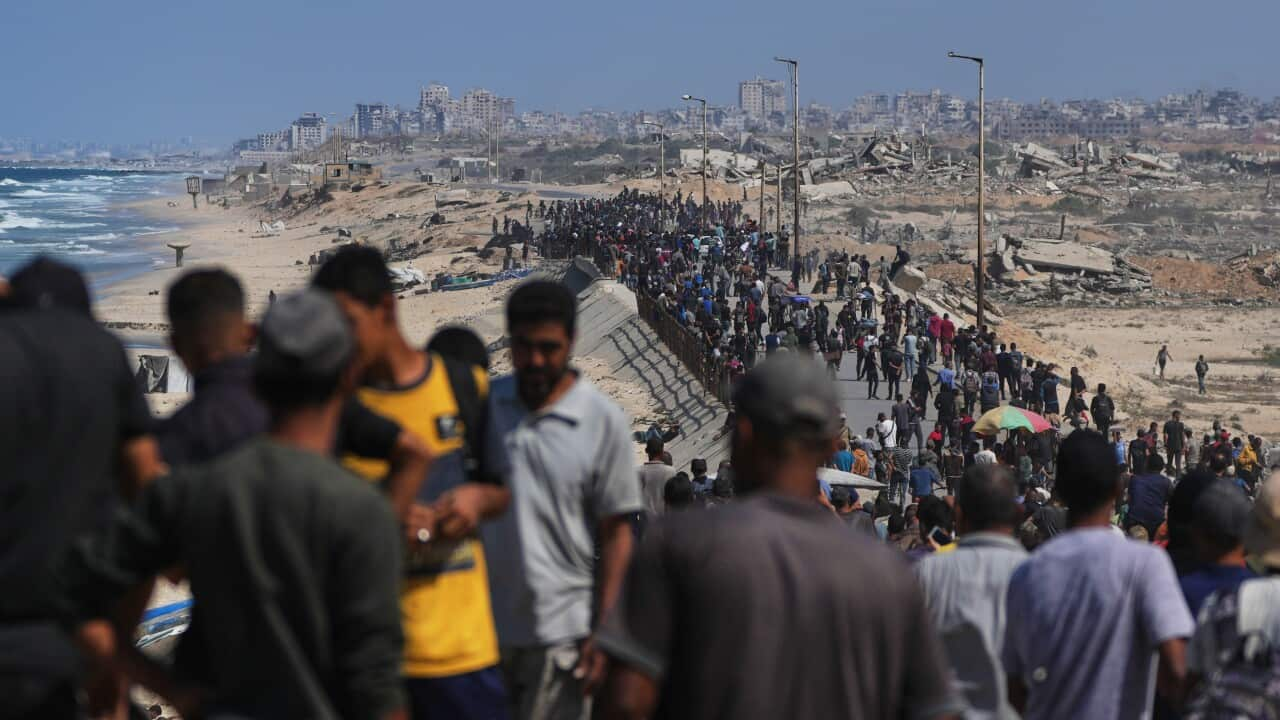Thousands of displaced Palestinians streamed back towards their abandoned homes on Friday after a ceasefire between Israel and Hamas went into effect and Israeli troops began pulling back from parts of Gaza.
A massive column of displaced Gazans filed north through the dust towards Gaza City, the enclave's biggest urban area, which had been under attack just days ago in one of Israel's biggest offensives of the war.
"Thank God my house is still standing," said Ismail Zayda, 40, in the Sheikh Radwan area in Gaza City.
"But the place is destroyed, my neighbours' houses are destroyed, entire districts have gone."
The Israeli military said the ceasefire agreement had been activated at noon local time (8pm AEDT).

Israel's government ratified the ceasefire with Hamas in the early hours of Friday, clearing the way to partially pull back troops and fully suspend hostilities in Gaza within 24 hours.
Hamas is expected to release the 20 living Israeli hostages within 72 hours, after which Israel will release 250 Palestinians serving long terms in Israeli prisons, as well as 1,700 others detained in Gaza during the war.
Once the agreement is operating, trucks carrying food and medical aid will surge into Gaza to help civilians, hundreds of thousands of whom have been sheltering in tents after Israeli forces destroyed their homes and razed entire cities to dust.
The first phase of US President Donald Trump's initiative to end the two-year war in Gaza calls for Israeli forces to withdraw from some of Gaza's major urban areas, though they will still control roughly half of the enclave's territory.
In a televised address, Prime Minister Benjamin Netanyahu said Israeli forces would stay in Gaza to ensure the territory was demilitarised and Hamas disarmed in future stages of Trump's plan.
"If this is achieved the easy way then that will be good, and if not then it will be achieved the hard way," he said.
Israeli forces pull out of Gaza positions
In Khan Younis, in the southern Gaza Strip, some Israeli troops pulled back from the eastern area near the border, but tank shelling was heard, according to residents.
In Nusseirat camp in the centre of the enclave, some Israeli soldiers dismantled their position and headed east towards the Israeli border, but other troops remained in the area after gunfire was heard in the early hours of Friday.
Israeli forces pulled out from the road along the Mediterranean coast into Gaza City.
As the day wore on and it became clear troops were no longer blocking the roads into cities, an initial trickle turned into a flood of Palestinians returning from makeshift tented camps to the homes they had left behind.

"As soon as we heard the news of the truce and ceasefire, we were very happy and got ready to go back to Gaza City, to our homes. Of course, there are no homes — they've been destroyed," Mahdi Saqla, 40, said.
"But we are happy just to return to where our homes were, even over the rubble. That too is a great joy. For two years we've been suffering, displaced from place to place."
Israeli military spokesperson Brigadier General Effie Defrin urged residents of Gaza to avoid entering areas under Israeli military control: "Keep to the agreement and ensure your safety," he said on Friday.
Twenty Israeli hostages are still believed to be alive in Gaza, while 26 are presumed dead and the fate of two is unknown.
Hamas has indicated that recovering the bodies of the dead may take longer than releasing those who are alive.
The Hamas-run interior ministry said it would deploy security forces in areas where the Israeli army withdrew. It was not clear whether armed militants would return to the streets in significant numbers, a move Israel would see as a provocation.
Trump to visit Israel, possibly Egypt
Meanwhile, Israeli police said they were preparing for Trump's visit on Monday, which officials said would include a speech to the Knesset, Israel's parliament, the first by a US president since George W Bush in 2008.
Trump said he would head to the region on Sunday, perhaps to attend a signing ceremony in Egypt.
Axios, citing four sources with knowledge of the matter, reported on Friday that he plans to convene world leaders for a summit on Gaza while in Egypt.
The next phase of Trump's plan calls for an international body — the "Board of Peace" — to play a role in Gaza's post-war administration.
The plan calls for Trump to lead it and includes former UK prime minister Tony Blair.
Hamas has said it would relinquish Gaza governance only to a Palestinian technocrat government supervised by the Palestinian Authority and backed by Arab and Muslim countries. It rejects any role for Blair or foreign rule of Gaza.
For the latest from SBS News, download our app and subscribe to our newsletter.

